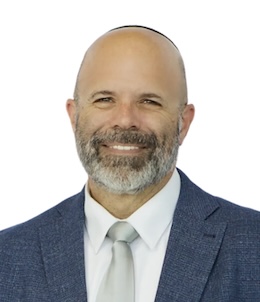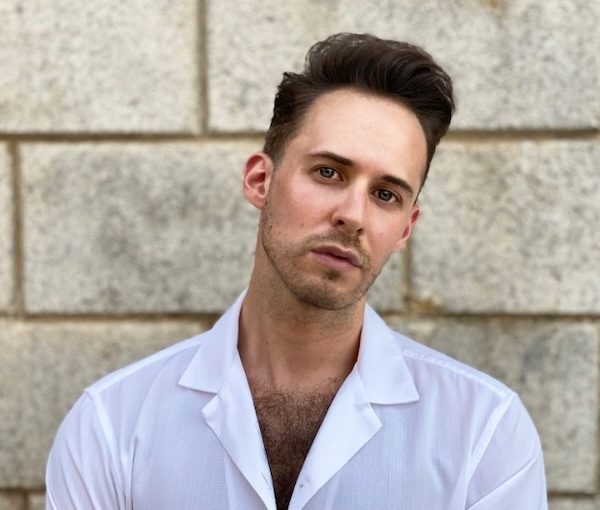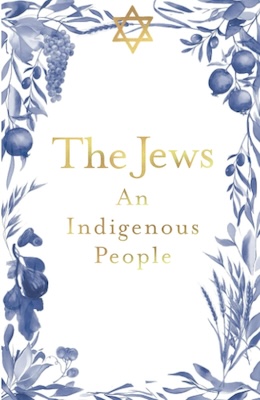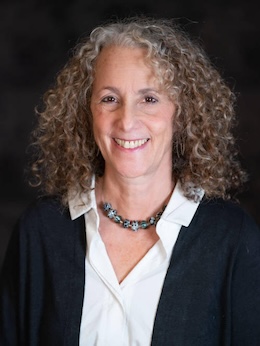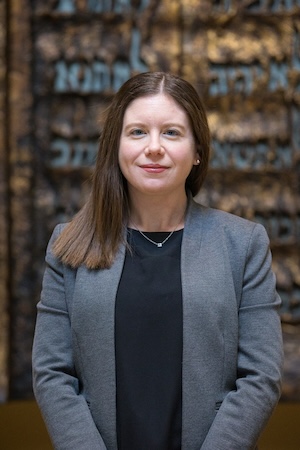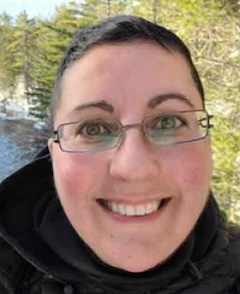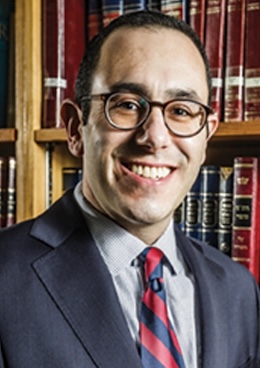In a March 2 lecture called Jewish Innovators Who Changed the World, Jonathan Bergwerk spoke about the lives and psychology of prominent historical figures.
“I’m especially interested in what makes these people tick,” said Bergwerk, the author of the Audacious Jewish Lives series, which covers a diverse selection of individuals who have left their mark on the world.
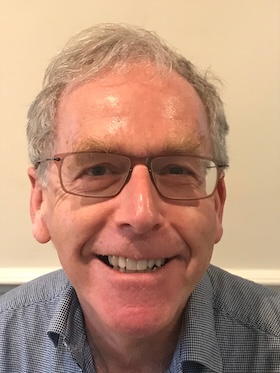
Bergwerk was the latest speaker in Kolot Mayim Reform Temple’s 2024/25 Kvell at the Well Zoom webinar series. He began his talk by referencing the number of Nobel Prize winners who have been Jewish – at least 214 of 976 individuals (and 28 organizations), with Albert Einstein, Richard Feynman and Jonas Salk among them.
“They have received over 100 times the number of Nobel Prizes than might be expected. That’s astonishing,” Bergwerk said, noting that Jews comprise just 0.2% of the world’s population.
Across fields, one finds seemingly inexhaustible lists of influential Jewish contributors: literature (Franz Kafka, Arthur Miller, IB Singer), cinema (Louis Mayer, Steven Spielberg, Stanley Kubrick) and music (George Gershwin, Barbra Streisand, Leonard Cohen).
Bergwerk argued that, to understand the Jewish drive for innovation, one might have to go as far back as the Hebrew Bible and the story of Jacob encountering a “man” (angel, perhaps) who tries to stop him from returning home.
“The act of wrestling enabled Jacob to confront his stealing and lying, and to accept responsibility for who he had been,” Bergwerk said. “He learned that it was through struggle, and not by running away from conflict, that he could become the person he was meant to be. So, our life’s purpose – our Jewish challenge – is to discover who we truly are.”
In Bergwerk’s view, the Torah is replete with innovators who had a clear vision and swam against the tide of society’s expectations. Moses, though unable initially to speak clearly, became an inspired and decisive visionary, developing the fundamentals of monotheism and condemning idolatry.
Other “audacious innovators” include Judah, Jacob’s fourth son, the first person not to blame others when things went wrong; Ruth, the Moabite, who went against the norms of a patriarchal society by leaving her people and supporting Naomi; and Elijah, who discovered “that God’s presence and guidance came through quiet, intimate moments of reflection and humility.”
Bergwerk included Jesus of Nazareth in his talk.
“Jesus was an observant, but unconventional, Jew, who was driven by profound beliefs in God, ethics and social justice. He was independent, courageous, an inspirational and charismatic revolutionary, who attracted committed followers,” Bergwerk said. “His teachings challenged religious and societal norms. He tried to be a radical reformer, but always operated within the boundaries of Judaism.”
As Bergwerk moved from the Hebrew Bible through history to present times, a lengthy catalogue of Jewish innovators was provided. Baruch Spinoza, the Rothschilds, Karl Marx and Theodor Herzl were but a few, though scores of others could have been chosen.
Having researched more than 100 such people, Bergwerk suggested possible reasons for the seemingly disproportionate level of Jewish success.
First, Jews are perfectionists, he argued. Though perfectionists are often disappointed, by setting unrealistic goals and expectations, they carry the drive to improve the world in the face of setbacks.
Next, he said, finding themselves as outsiders and not fully accepted has, at times, served as an advantage.
“Oppression, migration and desperate poverty were often creative forces,” said Bergwerk. “They also led to a focus on study. Jews have often been successful in the secular world because Judaism so strongly values learning.”
His third argument was the encouragement in Judaism to challenge tradition and to think independently. Here, he shared the anecdote of Nobel Prize-winning physicist Isidor Isaac Rabi, whose mother, instead of wondering if he received good grades in school, wanted to know, “Did you ask a good question today?”
“Judaism, at its best, is a challenge to the world on how it can be improved. Many Jews dared to ask difficult questions, challenged the status quo and strove to leave the world better than they found it,” Bergwerk said. “Their story is truly inspirational. The message I take from these audacious Jews, is that we are being properly Jewish when we, like Jacob, are wrestling with our own challenges, and so contributing in ways we never thought possible.”
Bergwerk emphasized that this wrestling should not only be with ourselves, however, as that does not build community. Rather, one needs to take personal responsibility, as well as act as part of a community and take collective responsibility.
“We should live the Jewish values of learning, justice and tikkun olam – to strive to shape society for the better,” he said. “That’s what we have done for the last 3,000 years, and the world definitely needs us to carry on providing that hope today.”
The final speaker in this year’s Kvell at the Well series is Mordechai Pinchas, a scholar and scribe who serves communities in the United Kingdom and elsewhere. Pinchas will share stories from his career on April 6, 11 a.m., in a talk called Torah Tales: Adventures in Scribal Art. To register for this free Zoom webinar, visit kolotmayimreformtemple.com.
Sam Margolis has written for the Globe and Mail, the National Post, UPI and MSNBC.

